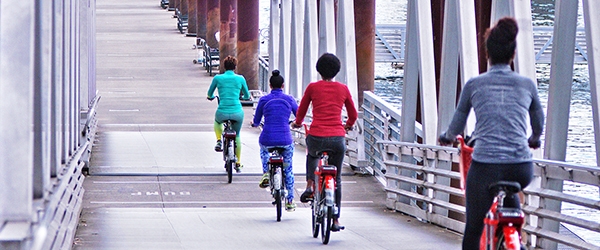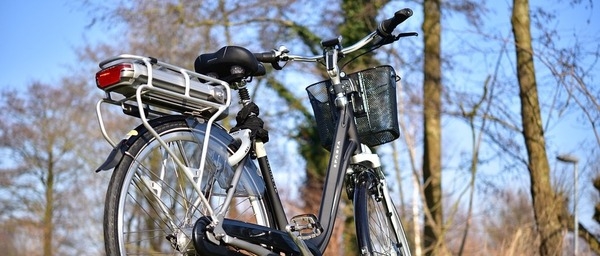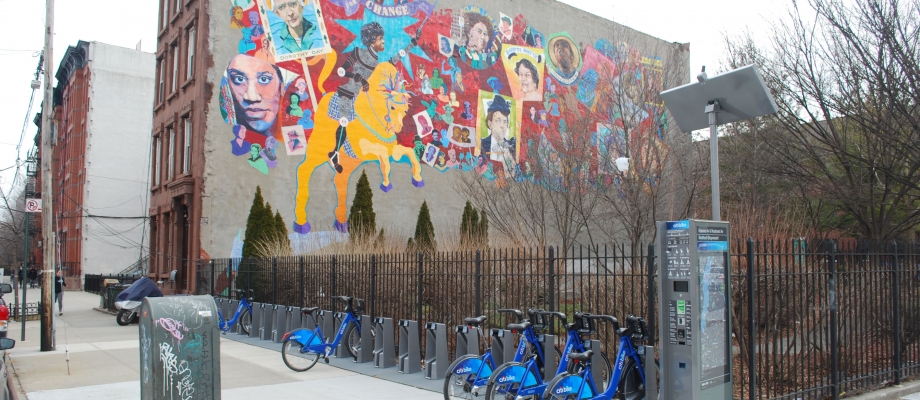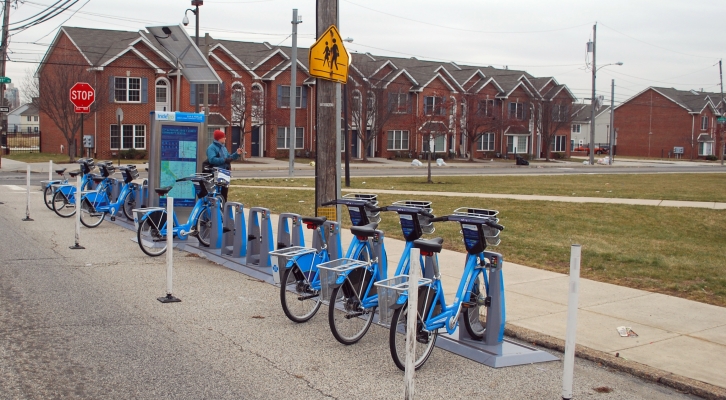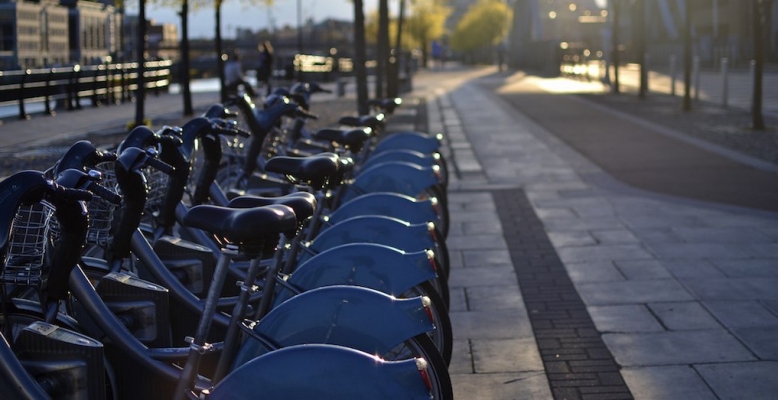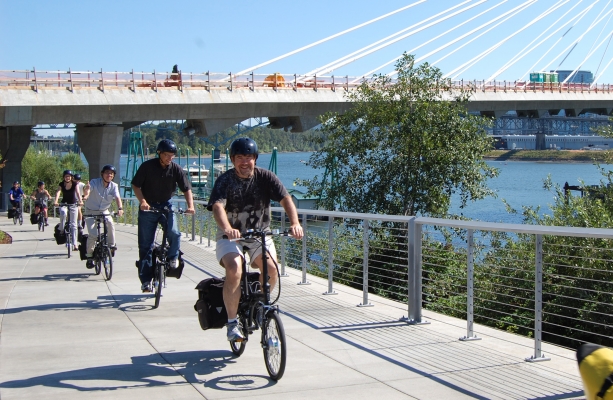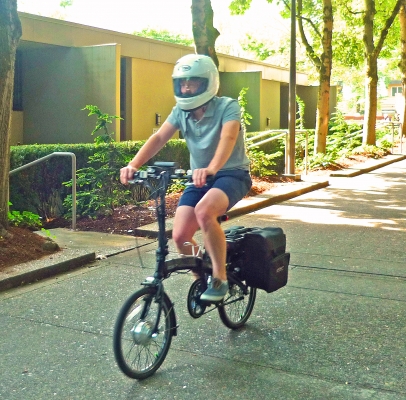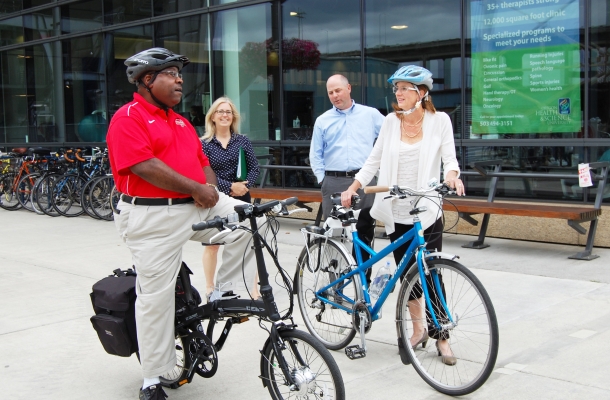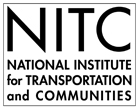This week, Portland State University’s Transportation Research and Education Center (TREC) releases a new research report comparing equity-oriented programs across several U.S. bike share systems. The research finds a variety of methods in place, ranging from affordability to internal hiring practices and beyond. The report is assisted by Toole Design...
Read moreIf more drivers switched seats to a bicycle, there would be immediate and tangible benefits on the road. Widespread adoption of bike commuting could improve public health through increased physical activity and reduced carbon emissions, as well as ease the burden on congested roads. However different lifestyle demands, physical ableness, and varied topography create an unequal playing field that prevents many from replacing their car trips.
Electric bicycles (e-bikes) are a relatively new mode of transportation that could bridge this gap. If substituted for car use, e-bikes could substantially improve efficiency in the transportation system while creating a more inclusive biking culture for people of all ages and abilities.
A newly published NITC study by John MacArthur of...
Read moreThe third and final phase of our bike share equity research project has been published, with new findings from a survey of bike share users.
Riders targeted for equity-focused outreach efforts—lower-income individuals and people of color—were most likely to cite cost savings or discounted membership as reasons why they joined, while higher-income and white users were more likely to cite the convenience of using bike share. Lower-income riders were also more...
Read moreAlso check out this series of articles about the project from our partners at Better Bike Share Partnership:
- Researchers investigate where to look next in bike share studies
- Study from Portland shows untapped potential for bike share
- Bike share study shows need for infrastructure is clearer than ever
- Study looks at price and incentives to get low-income residents on bike share
Evidence has...
Read moreWhile bike-sharing systems become increasingly common in American cities, questions about the equity of such systems are making their way to the forefront of the conversation.
Bike share can provide a cheap and healthy means of transportation, but many systems are not serving the lower-income and minority populations who, arguably, could benefit most from having the additional travel option.
A survey of 56 bike share system operators in the United States offers an overview of how these equity concerns are being addressed.
The survey is part of a larger research effort, Evaluating Efforts to Improve the Equity of Bike Share Systems. To gain an understanding of the challenges and opportunities involved in providing more equitable bike share, TREC and NITC teamed up with the Better Bike Share Partnership: a collaboration between PeopleForBikes, the National Association of City Transportation Officials (NACTO), the...
Read moreEvaluation of Electric Bike Use at Three Kaiser Permanente NW Employment Centers in Portland Metro Region
John MacArthur, Portland State University; Jennifer Dill, Portland State University
Despite efforts to get more people biking, North America still has low ridership numbers. The problem? Biking is hard.
A new report by John MacArthur of Portland State University's Transportation Research and Education Center (TREC), funded by the National Institute for Transportation and Communtiies, offers a solution to that problem: e-bikes.
Many people surveyed say that having to pedal up hills and arriving at their destination sweaty are major deterrents to commuting by bike, even when bike lanes and other facilities are there.
Researchers have put a lot of thought into ways to get more people riding bicycles by improving bicycle infrastructure, land use and public engagement. The efforts are largely due to concerns about congestion, climate change and public health. Comparatively little research, however, has focused on the bicycle itself.
MacArthur and co-investigator...
Read moreIn 2009, researchers at the Massachusetts Institute of Technology (MIT) developed the Copenhagen Wheel, a device that converts an ordinary bicycle into a hybrid e-bike.
An e-bike is considered a motorized bicycle under Massachusetts law. This means that once the 13-pound, 26-inch Copenhagen Wheel is attached to the rear wheel of a bicycle, the resulting vehicle requires a driver’s license to operate, must be registered with the DMV, and its rider must wear, not just a bike helmet, but a motorcycle helmet to be in compliance with the law.
Electric bicycles, or e-bikes, are well established in China and other Asian and European countries but market adoption has been slow in the United States.
Part of the reason could be that the law is often nebulous where e-bikes are concerned.
NITC researchers at Portland State University conducted a policy review revealing the current state of legislation regarding e-bikes in the United States and Canada.
The report, Regulations of E-Bikes in North America, provides a summary of legal definitions and requirements surrounding the use of electric-assist bicycles in each of the 50 states, Washington D.C. and 13 Canadian provinces.
No two jurisdictions are exactly alike in their legal treatment of this relatively new mode...
Read more- An analysis of the effects of commuter rail on population deconcentration.
- A look into prioritizing pedestrians at signalized intersections.
- A study of cyclist-vehicle interaction.
- An evaluation of an eco-driving intervention.
Bicycle and pedestrian safety has emerged as a top priority for U.S. Transportation Secretary Anthony Foxx and the Department of Transportation. With this in mind, the department’s top research official visited Portland State University, home to the U.S. DOT-designated national center for livable communities.
Greg Winfree, the assistant secretary for research and technology, visited Portland State’s transportation research and education center June 13. Center Director Jennifer Dill and researcher Christopher Monsere gave Winfree a tour of the center’s living laboratory: Portland’s active transportation infrastructure.
Winfree, an advocate for improving safety for vulnerable road users, explored the city’s various bicycle safety efforts, including bike boulevards, protected bike lanes, bike boxes, bike-specific signals and signage. He also learned of pedestrian research involving traffic signals, crossings and...
Read moreThe NITC program's executive committee has selected a new roster of projects for funding under the National Institute for Transportation and Communities, or NITC, program. The committee chose 10 projects, totaling $900,000, under the NITC theme of safe, healthy and sustainable transportation to foster livable communities.
The projects are national in scope and reflect priority areas including transit supply and outcomes, and pedestrian and bicyclist behavior.
Projects selected include:
- A bicycle and pedestrian miles traveled project for Washington state.
- A study that measures the effectiveness on social media on advancing public transit.
- A look into crowdsourcing the collection of data on transportation behavior.
- A national study of Bus Rapid Transit outcomes.
A complete list of projects and principal investigators is below:
- National Study of BRT Development Outcomes: Arthur Nelson and Joanna Ganning, University of Utah
- Crowdsourcing the Collection of Transportation...

